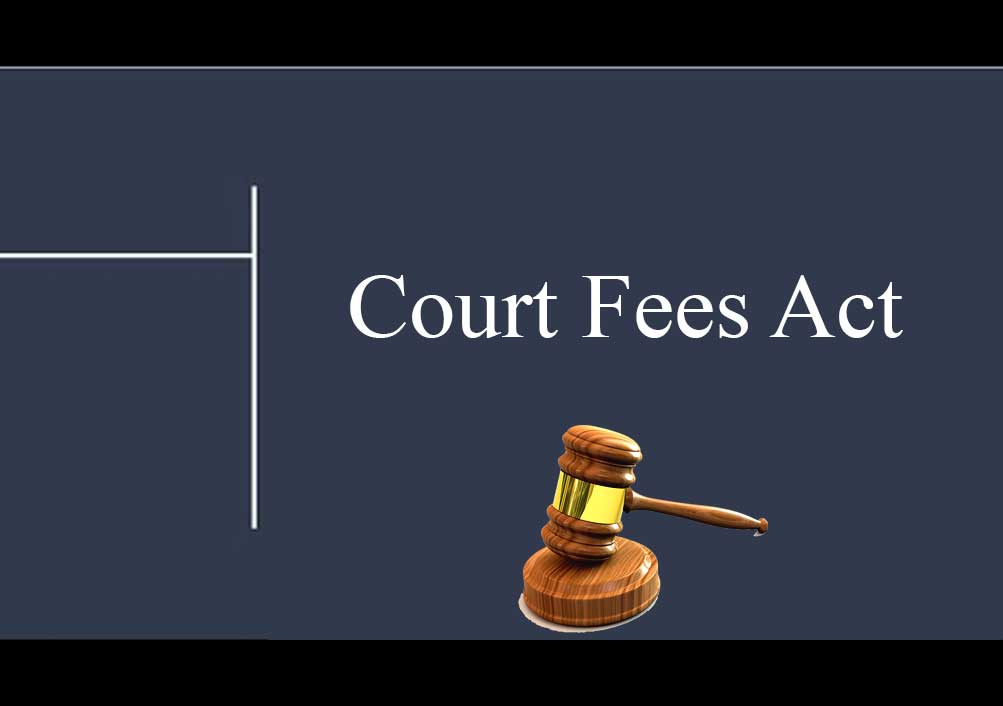Ad valorem Court-fees is payable on amount claimed in case of money suit for compensation and damages falling under clause (i) of Sec.7 of Court Fees Act, 1870 : Supreme Court

Read Judgment: State of Punjab & Others V. Dev Brat Sharma
Pankaj Bajpai
New Delhi, March 17, 2022: While hearing a case of rejection of application under Order VII Rule 11 r/w/s 151 of CPC whereby the plaintiff was required to make good deficiency in the Court fees on the amount claimed by him as compensation, the Supreme Court has held that valuation for the purposes of jurisdiction and relief has to be the same in the money suits falling under category 7(i) and it was only in category of suits covered by Clause (iv) of Section 7 of the Court Fees Act, 1870 that there could be two different valuations for the purposes of jurisdiction and for relief sought.
A Division Bench of Justice Vikram Nath and Justice Dinesh Maheshwari found that in the present case, the respondent has not given a separate valuation for relief sought and rightly so, as it had no liberty and right to give different valuation than what was being actually claimed.
Going by the background of the case, Dev Brat Sharma (respondent) retired as DDPO and was the youngest freedom fighter in the Quit India Movement. After retirement, he was practicing as an Advocate. The respondent was duly recognized by the Government of Punjab as a ‘freedom fighter’ but the Director, Lotteries, who was posted as Deputy Commissioner, Jalandhar at the relevant time, denied the said status. Accordingly, the respondent approached the High Court at Chandigarh which allowed his request for issuing the certificate of ‘freedom fighter’.
The respondent had to travel to Chandigarh several times, engage lawyers, pay fees and expenses for the said litigation at an old age, he had suffered great mental tension and torture on account of illegal acts of the officers of State of Punjab. As such, he suffered damages of approximately Rs.20 lakhs, which included Rs.2 lakhs for the litigation expenses, mental tension, harassment and further incidental damages. Accordingly, a legal notice was given u/s 80 CPC calling upon the officers to pay a sum of Rs.20 lakhs as damages suffered by him. When despite notice, the said amount was not paid, a suit was instituted.
The Trial Court disposed of the said application with the direction to the respondent to file the Court-fees on the amount of Rs.20 lakhs as claimed by him and granted about 10 weeks’ time to make good the deficiency. Aggrieved by the said order, the respondent preferred a revision petition u/s 115 CPC before the High Court, which held that as the actual and specified amount of damages was still to be assessed and determined by the Trial Court, as such, the direction of the Trial Court to pay ad valorem Court fees on the amount of Rs.20 lakhs was not sustainable in law. The High Court, accordingly, set aside the order of the Trial Court and rejected the application of the appellant under Order VII Rule 11 CPC with a further direction to the Trial Court to proceed with the suit.
After considering the submissions, the Top Court found that the present was a money suit for compensation/damages and not falling under any of the categories mentioned in clause (iv) of Section 7 of the Act. Therefore, there would be no question at all for the applicability of Section 7(iv) of the Court Fees Act, 1870.
It would be a simple case of applicability of Section 7(i) of the Act and ad valorem Court-fees would have to be paid as per Schedule 1 entry 1, added the Court.
Speaking for the Bench, Justice Nath noted that it is only with respect to the category of suits specified in clause (iv) of Section 7 of the Act that the plaintiff has the liberty of stating in the plaint the amount at which relief is valued and Court-fees would be payable on the said amount.
Liberty given under clause (iv) to the specific suits of six categories is not available to the suits falling under any other clause, be it (i), (ii), (iii) etc, and once the suit in question was a money suit for compensation and damages falling under clause (i) of Section 7 of the Act, ad valorem Court-fees would be payable on the amount claimed, added the Bench.
Justice Vikram Nath therefore concluded that the High Court fell in error in setting aside the order passed by Trial Court whereby it had granted time to the plaintiff-respondent to make good the Court-fees within a particular period failing which the plaint would stand rejected.
Accordingly, the Apex Court allowed the appeal and directed that the plaintiff-respondent shall make payment of such court fees, since the suit itself has been finally dismissed.
Sign up for our weekly newsletter to stay up to date on our product, events featured blog, special offer and all of the exciting things that take place here at Legitquest.




Add a Comment